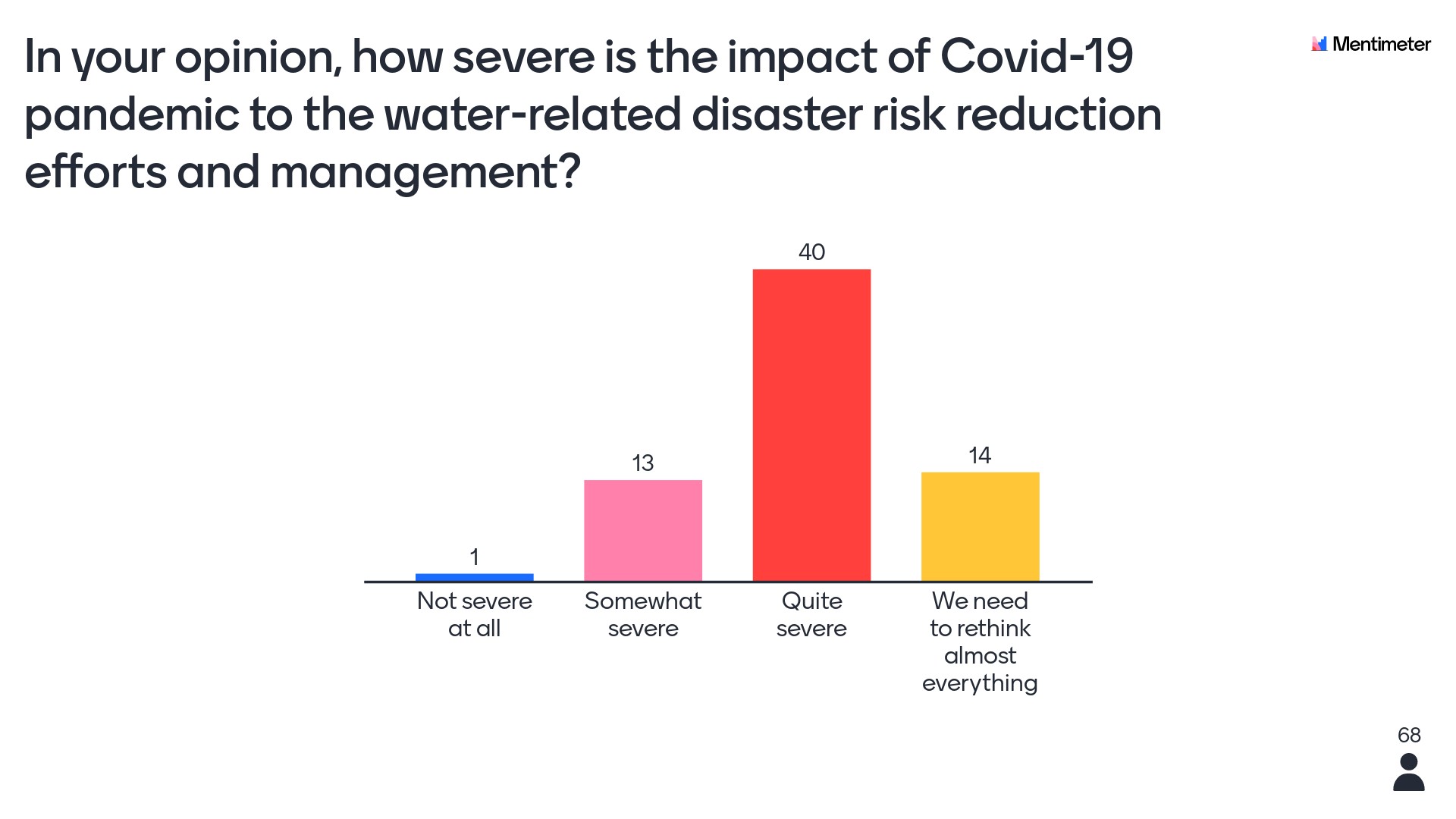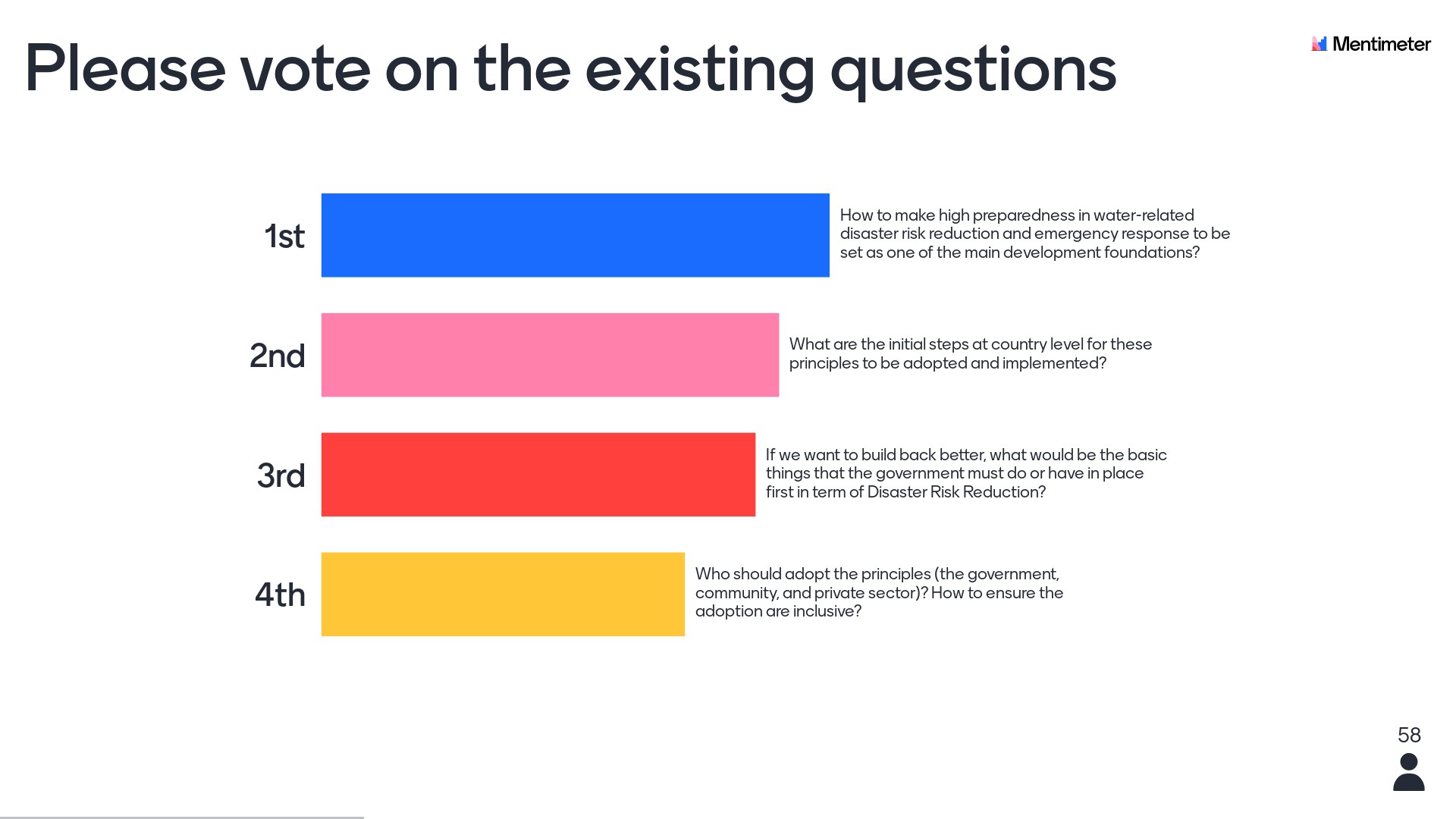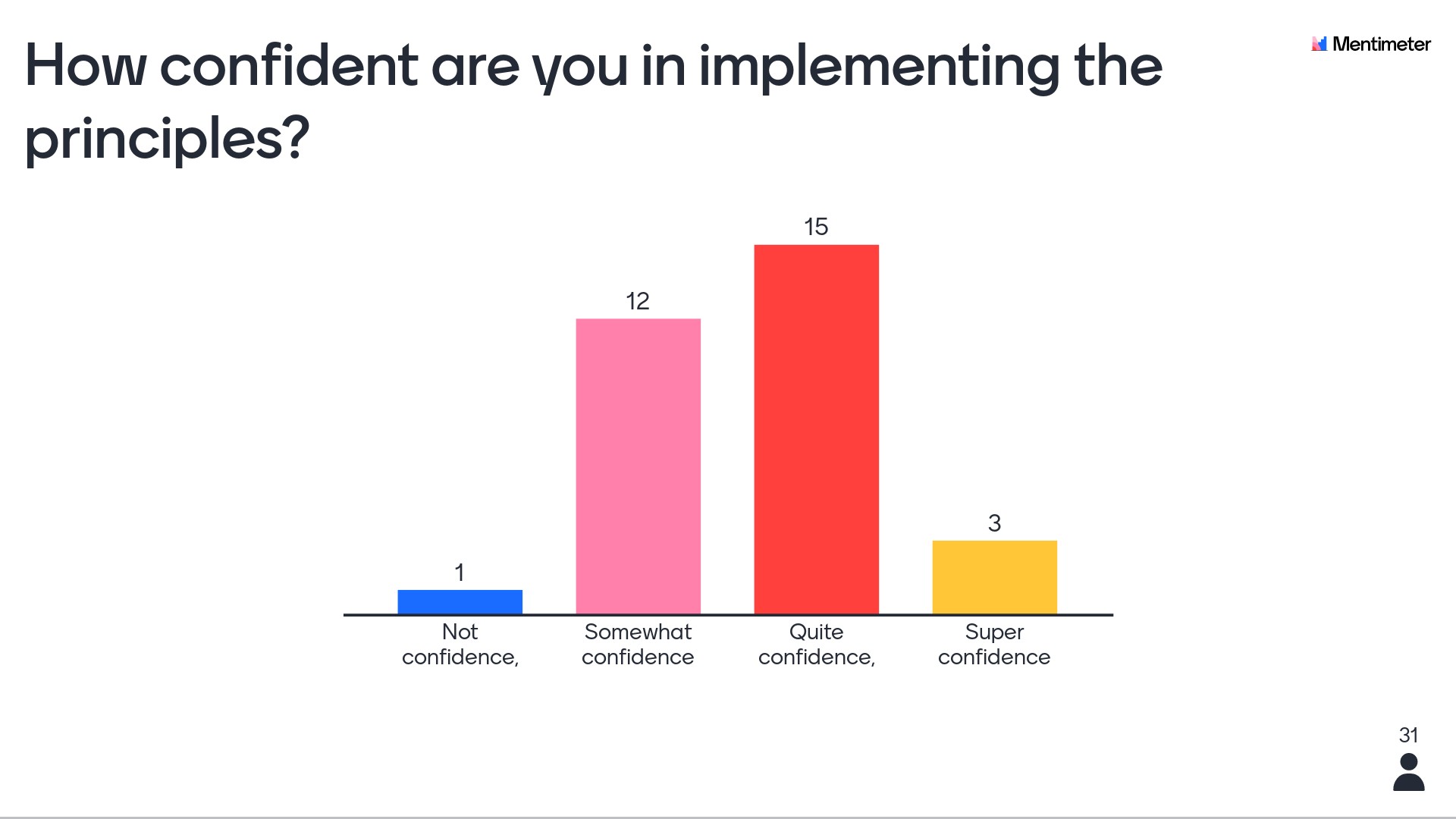On 30 July 2020, Global Water Partnership Southeast Asia (GWP-SEA) successfully co-organized the HELP-GWP PAN Asia online consultation meeting with more than 100 participants engaged in the discussion. Dr. Zelina binti Zaiton Ibrahim, lecture at the Universiti Putra Malaysia, Alternate Steering Committee member for Malaysia Country Water Partnership moderated the event. The GWP-SEA chairman Dr. Inthavy Akkarath of Lao PDR warmly welcomed the participant with an opening remark. He explained, “the risk from the pandemic and the natural disaster, particularly water-related disaster, has created a term called twin risks, and therefore we are forced to learn how to build back better”. He added that the principles that HELP is currently developing can help governments and other stakeholders to be more prepared in managing the situation; and the online consultation meeting will focus to gain practical insights into how such principles can be implemented on the ground. His key message was “disasters won’t change by luck but we have to change the disasters”.
Figure 1. GWP-SEA chairman Dr. Inthavy Akkarath presented an opening remark

On this special occasion, the vice-chairman HELP water and disaster Dr. Basuki Hadimuljono who also currently act as the Minister of Public Works and Housing Republic of Indonesia shared his keynote speech. He explained, “The implementation of the health protocol will considerably increase the need for clean water. Therefore, we need to anticipate such a situation in the new normal era and ensure the provision of water to support environmental health “. He emphasized the importance of preparing Standard Operation Procedures (SOPs) for emergency evacuation that complies with health protocol. This includes the preparation of a suitable evacuation site equipped with well-designed tents, mobile water processing installation, and mobile sanitation. Furthermore, he added improving the current early warning system is crucial. With more accurate weather prediction, water can be managed better as it will have a longer ‘lead time’ to anticipate various disturbing events such as floods, water shortages, and droughts. The operation and maintenance of infrastructure and related data collection and analysis should be conducted in compliance with the ‘New Normal’ protocol. He also underlined the most important message was to carry out these initiatives by close partnerships and cooperation.
In his keynote speech, He gave several examples of how the government of the Republic of Indonesia’s response to water management that will increase the country’s resilience against disasters and pandemic. These examples are built 61 new dams and revitalized existing dams since 2015; cooperate with other government agency, the Agency of Meteorology, Climatology, and Geophysics to improve the early warning system; anticipate food shortages due to declines in food production activities by developed food estate in Central Kalimantan together with related ministries.
Figure 2. vice-chairman HELP water and disaster Dr. Basuki Hadimuljono who also currently act as the Minister of Public Works and Housing Republic of Indonesia delivered his keynote speech

The consultation then continued by the HELP coordinator and GRIPS Professor, Professor Kenzo Hiroki’s presentation on the draft principles and its urgency. He started the presentation by highlighted several water-related disasters that happened between June-July 2020 which happened during the COVID-19 pandemic such as floods in Fubei – China, Assam – India, Polan, Nigeria; tornados in New Zealand; storms in New England – USA; and cyclones in Southern Brazil. He emphasized there was a correlation between an increased number of daily new COVID-19 cases about 2 weeks after a cyclone hit the Amphan – West Bengal India. The presentation also illustrated the draft principles as an action-oriented guideline which suggested 10 principles to be addressed by governments in dealing with water-related DRR under the COVID-19 pandemic; illustrated how practical the principles are by the example of the US Army Corps of Engineers in responding to the New York’s situation and how several municipals in Japan responding to the post-disaster situation under the COVID-19 pandemic.
Figure 3. HELP coordinator and GRIPS Professor, Professor Kenzo Hiroki’s presentation on disaster response under COVID-19 in Kumamoto - Japan

To engage the participants, the organizer introduced an ‘ice-breaker’ session with polling during the introduction session. The result of the polling are shown below.


After the introduction section, 6 panelists representing diverse stakeholders gave a response to the draft principles. The first panelist represented private sectors was Ms. Basja Jantowski, Program Director for the Alliance for Water Stewardship Indonesia. In her presentation titled ‘ahead of the curve’, corporations to some extent impacted by water-related disaster and pandemic; and She stressed the need to re-imagine and re-design the business. The AWS standard which aligned with the CEO Water Mandate and the UN global compact offered a corporation a way to be a responsible water steward. This can be done by “the use of water that is: socially & culturally equitable, environmentally sustainable and economically beneficial” that achieved through a stakeholder-inclusive process that involves site and catchment-based actions. The framework, in particular, the ‘commit and plan’ step are aligned with the HELP principles in particular: Principle 2 -Integrate actions on risk management of disasters and pandemic; Principle 3 - Provide clean water, sanitation, and hygiene sustainably during and after disasters; and Principle 9 - Finance DRR actions under COVID-19 effectively to avoid economic disaster.
The second panelist was Dr. Alexander Mindorashvili, Georgian Focal point for “Water & Health Protocol”. He argued that like many developing countries, Georgia has a problem in ensuring equal access to water and sanitation in all parts of the country and therefore several strategies and programs were developed to this end. Given the COVID-19 pandemic situation, the country statistically has the smallest number of cases (infection and casualty) in the Caucasus region. This happened as the government immediately respond to the scientist's recommendation, the community strictly complied with the instructions and a successful non-compliance penalty implementation.
The third panelist was Prof. Santosh Kumar, Professor, and Head of the Governance, Public Policy and Inclusive Development Department of the National Institute of Disaster Management, Ministry of Home Affairs, Government of India. He explained that water-related disasters in India has affected 3 billion people, with 1,6 million fatalities for the past 20 years andincreased significantly every year. The economic loss is huge as it is comparable to the number of populations within the country. Water issues are closely intertwined with the international agendas such as Paris agreement, SDG, and Sendai Framework for DRR that pose a dilemma “too much and too little water”. He underlined the need for investment in physical resilience as it can prevent catastrophe and allows a faster recovery. Several examples in building financial resilience were given such as through sovereign risk transfer, contingent credits, or budget reserves/budget reallocations. In the last part of the presentation, he suggested: regional and sub-regional collaboration, strengthening local government, reinventing response protocol, and addressing gender perspective.
Professor Sheng Jifang, Professor, Chief Physician, Doctoral Supervisor, Director of the Department of Infectious Diseases, that act as an expert team for COVID-19 prevention and control of Zhejiang Province shared “Lesson from China: Hospital strategies for managing COVID-19” as the fourth panelist; and Her supervisee Mr. Junwei Su M.D presented on her behalf the optimization of admission and screening process as a devised strategy that involved three different aspects namely transportation of patients, the fever clinic, and procedure for patient’s admission. He argued, “Pre-hospital management is a very important part of infectious disease control, as we should avoid new hospital infection but also avoid missed diagnosis”. First, all confirmed cases should be transported by negative pressure ambulances and ambulance attendants should be welled-equipped by personal protective equipment. The fever clinic also should be restructured to make visits more convenient and safer. In the later stage, a questionnaire will be filled by patients before preview triage; and according to the results, nurses will classify fever patients into two groups, suspected and excluded. China’s lesson also highlighted the importance of an evolving strategy based on stages of the epidemiologic curve. Furthermore, there are several control measures to be employed to avoid infection to the non-COVID-19 patients, in particular, transferred patients to local hospitals (one room one patient), minimizing public panic, on-line clinic medications delivery, and to delay non-urgent surgery. It is also important to make arrangements and backup of medical workers, including staff workflow management and training, and staffs’ health management.
The fifth panelist represent NGO and community-based practitioner in Malaysia, Dr. Kalithasan Kailasam, River Care Program Manager at the Global Environment Center. He said, “The draft Principles are very useful as a community-based NGO – it is key to iron out those principles align to the pandemic”. From the community perspective, there are several key challenges faced by communities during the disaster. Based on his experience in managing several programs, the challenges are access to latest/relevant information (rainfall/water level/early warning), effective communication especially with rural/indigenous communities, immediate clean water and food supply during the disaster, improve sanitation services especially in rural/indigenous communities, mindset change from a curative community-based preparedness measures to a more proactive role, legislation and enforcement, lack of financial resources, proper understanding on mitigation or adaptation, localized mechanism, and limited access to indigenous community sites for support during pandemic. Therefore, the draft principles need to address several issues: human and financial resources limitation (Principle 1), maintenance of community-based equipment are limited due to the lockdown orders (principle 4), Recovery planning measures are costly due to the nature of the virus being highly infectious and not with a vaccine in sight (principle 10). Lastly, he showed the advantages on implementing the principles at the ground level by improving the monitoring system and support financing scheme to access fund from public and private sector as only 10 percent of the community able to bear the cost of DRR.
Dr. Miho Ohara, Senior Researcher for International Centre for Water Hazard and Risk Management (ICHARM), and Public Works Research Institute, Japan was the sixth and the last panelist who share the Japan experience in managing water related DRR in time of COVID-19. During the year 2009-2018 approximately 97% of the municipalities experienced one or more floods; and more than half (56.6%) of the municipalities have been flooded more than 10 times. Therefore, in the time of COVID-19, infection is the key issues for all the municipalities in Japan. Responding to the situation, the Public Works Research Institute (ICHARM) has developed a guidebook, a collection of critical situations during flood emergency response. A critical situation is a situation in which local government officers panic, do not know what to do, cannot decide, are confused or in dilemma during an emergency response effort. Based on this definition, 28 cases are considered as a critical situation. The guidebook consists of a local government response and an appendix for a response under COVID-19. The appendix section is divided into 8 chapters and describing possible critical situations and necessary countermeasures under the plague in terms of “Facilities,” “Management,” “Public announcement” and “Emergency response.”
During the Question and Answer session, several topics were discussed. Prof. Kenzo replied to the question of whether maintaining the safe distance is enough and how we can deal with disaster under COVID-19. He replied, “The priority during disaster event is to save lives and should consider to go to a safe place, then later to think about COVID-19 and safe distancing with additional ventilation and prevention of contact by the COVID infected people”. He added, “During disaster a large number of populations need to be evacuated, if the boat is not designed with response equipment with proper ventilation – the whole operation is at risk. Therefore, it is important to increase the capacity of local governments”. A question regarding public-private partnership also arises and Ms. Basja replied with, “Create financial modules to deal with the disasters – need a proper assessment and what the financial counterparts can bring”. For the question on dealing with crowded situation, Dr. Kalithasan replied, “Need to have champions on drills to get the people to prepare for such incidents” “expose to stimulation modules people at all levels of the communities, even at schools”.
The next session, zoom’s breakout room was introduced; and participants were distributed to 6 different groups. The discussed questions were: 1) How applicable are the principles to be implemented on the ground, 2) Which principles can be implemented in 3-5 years (short term), 3) What are the biggest challenges and opportunity to implement the principles. Different responses to the questions were given. However, in summary the answer to question number 1 is that several principles are being implemented by countries and some other possible to carry out under the right stimuli. Responding to question number 2, the participants also agree that most of the countries already have a foundation to implement the principles within a short-term period (3-5 years), though it is important to differentiate between local intervention and national intervention. In addition to that, government should launch a special fund to transferred risks into insurance products and obligation or reallocate the budget and allocating budget reserves. Responding to question number 3, the biggest challenges in implementing the principles is good leadership in utilizing science as the basic for decision making process. Other challenges need to be address are financial modality and resources, raising awareness of the non-water sectors, changes in situation before and after vaccine, including a bottom-up process and take the community-level wisdom into account while at the same time able to unlock community potential. Regarding the opportunity in implement the principles, it is crucial to integrate action from different government agencies in dealing with delivery of DRR and COVID-19. In addition, bring together different stakeholders and implement different financial scheme is highly recommended. At the community level, it is important to enhance community unity and trust to the covid-19 centre, especially to those communities that have many elderly people; and focus on the disaster preparedness such as drilling so the community can use their own resources especially in a difficult site during the response and recovery phase.
The event then closed by an announcement that on 20 August (8:30 a.m.-11:05 a.m., Central European Time), the International Online Conference to Address Water-related DRR under the COVID-19 Pandemic will be held. At the conference, Mr. Angel Gurría the secretary general of OECD, and H.E. Dr. Danilo Türk the Chair of the Global High-Level Panel on Water and Peace and Lead Political Advisor of the Geneva Water Hub (former President of the Republic of Slovenia) will deliver a keynote speeches. Following by discussion by the HELP members: H.E. Mr. Basuki Hadimuljono, Minister of Public Works and Housing, Republic of Indonesia; H.E. Ms. Cora van Nieuwenhuizen, Minister of Infrastructure and Water Management, Kingdom of the Netherlands; Mr. Ilkka Salmi, Director for Disaster Preparedness and Prevention, DG ECHO, European Commission; Dr. Shinichi Kitaoka, President, Japan International Cooperation Agency (JICA); Mr. Bambang Susantono, Vice President for Knowledge Management and Sustainable Development, Asian Development Bank; Ms. Catarina de Albuquerque, Chief Executive Officer, Sanitation and Water for All; Representative of WHO. Ms. Yumiko Yasuda the GWP’s Senior Network Officer for Asia in her closing remarks informed the participants if they have any further comments share them with event organisers and thanked all who attended the consultation. The result of check-out polling can be seen below.

